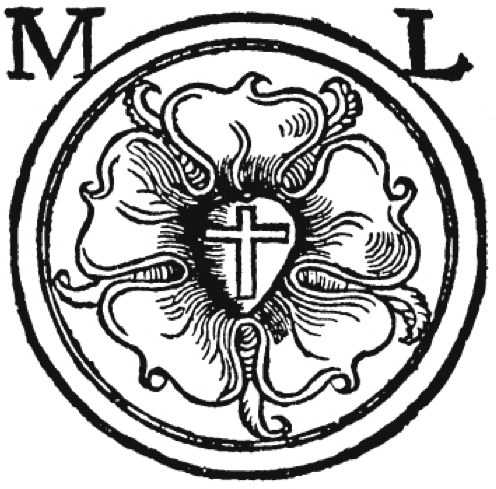The Christian in Community
The book of Exodus records the creation of a community. It will help us understand what a profoundly important work God is doing in Exodus to observe the contrary impulses of our own day.
It is a sad fact that so many people see each other as objects to be used and then discard-ed, rather than as fellow members of a body or community. Young people hook up for a night or week or month, and then discard the unwanted person. A husband uses his wife until he tires of her and then moves on. Couples see children not as precious gifts placed by God into a divinely ordered community (the family), but as forms of obsessive self-fulfillment, as objects of personal pleasure, as projects to fulfill an agenda, as burdens to be endured—to be rid of as soon as possi-ble, or perhaps never to leave. People today fear commitment, avoid joining groups, isolate them-selves in their work, their play, their private lives. Computers, cell phones, home entertainment centers, and the attending evils of internet pornography, gambling, or gaming addictions make this situation far worse. People resist forming or joining communities.
In Exodus 3 and 4, we find Moses the lonely shepherd, isolated from his people in Egypt. Israel was a slave people. They were like sheep without a shepherd. They lacked the essentials for the formation of a church and a nation: a common purpose, a common leader, a common vision and message, a common law, a common worship, a common structure and form. We have heard that there were pious Christians among them, for example, the midwives who refused to perform abortion and infanticide (Exodus 1). But they were entirely incapable of planning and acting as a community.
Exodus 2 ends with God’s resolve to act on behalf of the people of Israel: “And God heard their groaning, and God remembered His covenant with Abraham, with Isaac, and with Jacob. And God saw the people of Israel—and God knew” (24–25). His first act was to call Moses into the Office of the Word of God. Moses would serve as civil ruler, as judge, as priest, as battle command-er. But it was through the Office of the Word of God that God would constitute the “harassed and helpless” Israelites (Matthew 9:36) into His “kingdom of priests and a holy nation” (Exodus 19:6), that is, into the church of the living God.
So the Holy Spirit teaches in 1 Corinthians 10:1–4, “For I do not want you to be unaware, brothers, that our fathers were all under the cloud, and all passed through the sea, and all were baptized into Moses in the cloud and in the sea, and all ate the same spiritual food, and all drank the same spiritual drink. For they drank from the spiritual Rock that followed them, and the Rock was Christ.”
In Exodus 3–4, God called Moses into the Preaching Office. Like other Old Testament prophets (and not a few New Testament pastors), Moses was a reluctant candidate. He did not know what to preach. He assumed his hearers would reject His divine call. He was a poor public speaker. “Oh, my Lord, please send someone else” (4:13). But God elected him and appointed him, gave him the sermon to preach and teach, established his authority with public evidence, and provided him an assistant.
God’s church, and every one of our congregations, is created and constituted by God alone. “You yourselves like living stones are being built up as a spiritual house, to be a holy priesthood, to offer spiritual sacrifices acceptable to God through Jesus Christ” (1 Peter 2:5). “Christ loved the church and gave Himself up for her, that He might sanctify her by the washing of water with the Word…” (Ephesians 5:25–26). We become the church—God constitutes us as the church—in the person of Jesus, through His death and resurrection, and by the Word of God. “He Himself bore our sins in His body on the tree, that we might die to sin and live to righteousness. By His wounds you have been healed. For you were straying like sheep, but have now returned to the Shepherd and Overseer of your souls” (1 Peter 2:24–25).
God called Moses to be His preacher, that through the spoken Word of God He might gather to Himself a holy community, cleansed of sin, set apart for His own good and gracious purposes. In the same way God gathers us into the church. He calls pastors through His church, servants of God’s Word, so that by their ministry He may create and constitute the congregations into which we have been called. By this ministry and through His church we are led into a Promised Land far great-er than Canaan. “To Him who loves us and has freed us from our sins by His blood and made us a kingdom, priests to His God and Father, to Him be glory and dominion forever and ever.
Amen” (Revelation 1:6).
REFORMATION 500

In the spring of 1524 Luther sent out a plea regarding schools that has great significance to this day. “To the Councilmen of All Cities in Germany that They Establish and Maintain Christian Schools” (AE 45.347–378) describes the need for truly Christian schools, a curriculum that is appropriate for Lutheran schools, and a plea to collect libraries. To open and fund schools is to invest in the future. It is to preserve Christianity for the sake of the church and the home, and to provide virtuous and capable citizens for our civil communities.
Lutherans today do well to recognize how similar our own situation is to Luther’s. Formerly Christian schools were closing due to lack of funding, lack of students, and heretical preachers who blasphemed by teaching that the Holy Spirit came without God’s Word—without education. The Roman Catholic schools were teaching lies that led the children straight to hell. Luther suggested that it would be better for the children not to be sent to school than that they be sent to schools that would educate Christianity out of them. He recognized that in this matter the devil himself takes a special interest and is “the most dangerous and subtle enemy of all” (351).
We can no longer count on councilmen (i.e. the government) to establish and fund Chris-tian schools. The schools funded and run by our civil government are not Christian; in fact, they are often hostile to Christianity. As they say, the proof is in the pudding: too many of our own children have gone through our government school systems and public universities only to drop out of the church or fail to be of service in starting Christian households. It falls to us Christians, working together through our churches and through Christian homeschools, to educate our children and provide for their future as competent and faithful Christian adults.
Luther described three reasons why the Christians of his day should establish Christian schools. First, he observed how bad things had gotten in Germany and how bad the schools were. He observed that the schools could no longer be counted on to train children to be com-petent Christian adults. He emphasized the goal that “young people… come to maturity in the knowledge of God and…spread his word and teach it to others” (350). He reminded us that our great enemy in this endeavor is the devil.
Second, he pointed out that the time was right. The Renaissance and Reformation had changed things. Europe had rediscovered and recovered the sources of Western civilization in their original Latin and Greek. With the renewal of the languages and the seven liberal arts, the church finally had enough competent men available to teach in Christian schools. He urged his fellow Germans to “make use of God’s grace and Word while it is there!” Here he described God’s Word as a passing shower that does not return once it is gone. The same is true for us in our day. Now is the time!
Third, and most importantly, Luther re-minded us that God commands parents to edu-cate their own children. He referred to Psalm 78, the Fourth Commandment, and Deuteronomy. He observed that “nature itself should drive us to do this, and even the heathen afford us abundant examples of it” (353). He reminded us here, as he does in the Large Catechism under the Fourth Commandment, that the souls of our children are at stake, as well as our own souls. He taught us how seriously Jesus takes the spiritual care of children in Matthew 18:1–14. If we do not train up our children in God’s Word, it would be better to have a millstone fastened around our necks and that we be drowned in the depths of the sea. Luther listed three reasons why parents neglect this duty. First, some parents “lack the goodness and decency to do it,” even if they have the ability to teach their own children. Teachers must be virtuous in thought and life. Second, the great majority of parents unfortu-nately are unprepared to teach their own chil-dren. Luther recognized how difficult this task is. Third, it is also the case that parents often do not have the ability or the opportunity to teach their own children at home, and therefore need the help of others.
For all these reasons, Christian leaders ought “to devote the greatest care and attention to the young” (355) by starting and supporting Christian schools. We dedicate our time and money to many things. Luther observed how much the Christians of his day devoted to business, city affairs, civil defense, luxuries. We like-wise invest in our personal stuff—homes, cars, electronics, entertainment, travel. But our schools often get far less attention. Luther taught, “A city’s best and greatest welfare, safety, and strength consist rather in its having many able, learned, wise, honorable, and well-educated citizens” (356). We ought to “spare no labor or expense to produce and train…intelligent, wise, and competent men, so skilled in every art and rich in experience” (357, 356). He held up the ancient Romans as our example.
What kind of education should Christians receive? Luther immediately took up the anticipated objection to teaching Latin, Greek and He-brew, together with the ancient liberal arts, in our schools. He lamented, “Languages and the arts, which can do us no harm, but are actually a greater ornament, profit, glory, and benefit, both for the understanding of Holy Scripture and the conduct of temporal government—these we despise” (358). But Luther reminded us that we should see the devil’s evil designs in the loss of this Christian education.
Here is what is at stake in teaching the languages: “Although the gospel came and still comes to us through the Holy Spirit alone, we cannot deny that it came through the medium of languages, was spread abroad by that means, and must be preserved by the same means” (358–359). God used the Latin and Greek languages to spread the gospel throughout the whole civilized world of the ancient church. At the time of the Reformation, God revived the languages so that the gospel could be restored and the Reformation take place. “In proportion then as we value the gospel, let us zealously hold to the languages” (359).
God gave his Word to us in Hebrew (Old Testament) and Greek (New Testament). Luther waxed eloquent: “We will not long pre-serve the gospel without the languages. The languages are the sheath in which this Sword of the Spirit is contained; they are the casket in which this jewel is enshrined; they are the vessel in which this wine is held; they are the larder in which this food is stored; and, as the gospel itself points out, they are the baskets in which are kept these loaves and fishes and fragments. If through our neglect we let the languages go (which God forbid!), we shall not only lose the gospel, but the time will come when we shall be unable either to speak or to write a correct Latin or German” (360). Both our spiritual and temporal well-being are bound up with the languages and God’s Word.
Luther recognized that Greek and Hebrew are especially important for pastors and preach-ers. He acknowledged that some preachers may not have a good grasp of the languages. But he also emphasized that “languages are absolutely and altogether necessary in the Christian Church, as are the prophets or interpreters” (363). He ob-served that “where the preacher is versed in the languages, there is a freshness and vigor in his preaching, Scripture is treated in its entirety, and faith finds itself constantly renewed by a continual variety of words and illustrations” (365).
Luther went on to show that, even apart from spiritual and eternal concerns, civil govern-ment and the home still need a good education. God ordained both temporal government and the household. “In order to maintain its temporal es-tate outwardly the world must have good and ca-pable men and women, men able to rule well over land and people, women able to manage the household and train children and servants aright” (368). The goal is that our children “in the fear of God take their own place in the stream of human events” (369). A good Christian education in home and school raises up a new generation of men and women in the full image and stature of Jesus Christ (Ephesians 4, especially verses 13, 15, and 24).
Finally, Luther urged Christian leaders to provide for good libraries. He does not envision large libraries but libraries that have good quality books in them and support a sound Chris-tian education. He focused on six types of books: Holy Scriptures in all the languages; the best commentaries on Scriptures; books “helpful in learning the languages, such as the poets and orators, regardless of whether they were pagan or Christian;” books on the liberal arts and all the other arts; books on law and medicine; and “the chronicles and histories, in whatever languages they are to be had” (376).
We see today that our churches will survive and flourish only if we are able to raise up a new generation of Christians, competent and pious men and women who marry Lutherans, bear children and raise them “in the nurture and ad-monition of the Lord” (Ephesians 6:4), provide for their families, actively fill and support their churches, and serve well in their communities. None of this can be accomplished unless we succeed in training and forming them in God’s Word, in Christian piety, and in the best of all the wisdom and skill that our Christian heritage can give us. God give us the zeal of Luther and many such Christian fathers and mothers in the faith to devote ourselves to this great work!

